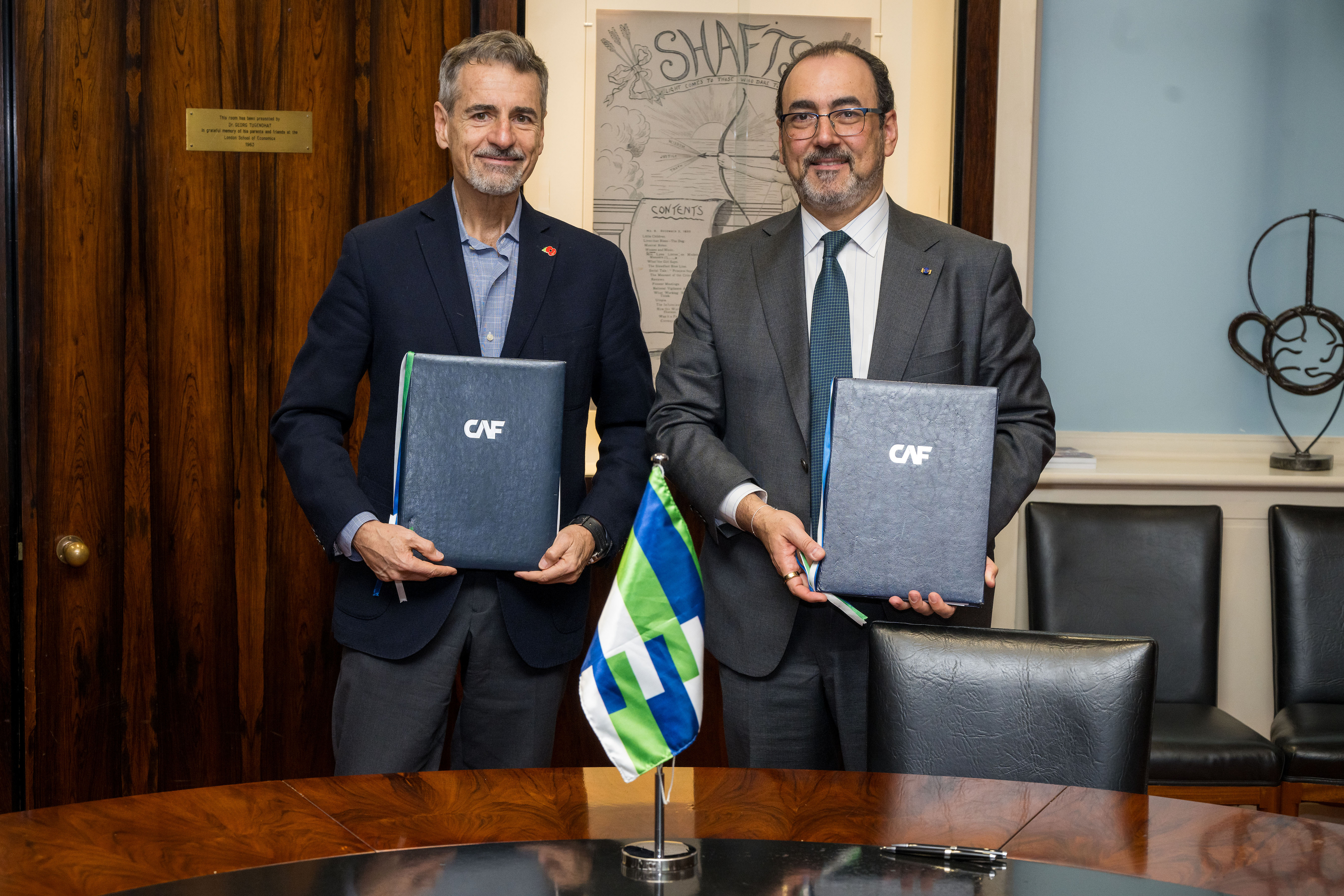
Carbon Market: Climate Solution for Latin America?
One of the certainties we learned from the COP26 in Glasgow is the need to create new financial instruments to raise enough capital to boost climate action and prevent the temperature of the planet from continuing to rise.
Among all the proposals, the carbon market looks most promising, especially for developing regions like Latin America. These markets operate by countries making transfers of emission reductions between them on a voluntary or binding basis. Although they are not yet regulated, the agreement between the countries at COP26 will be essential to activate the necessary mechanisms for market operation.
“Latin America could play a pivotal role in carbon markets, especially given its ability to deliver green projects and nature-based solutions. But to leverage all this potential, it will be essential to have infrastructures that allow efficiently articulation,” said Jorge Arbache, CAF’s Vice President of the Private Sector.
According to Arbache, the higher the quality of projects and the credibility of credits, the more carbon markets will be attractive will fulfill their role. This will require data monitoring, control, collection and compilation systems, as well as an infrastructure for their operation. This includes capabilities and human capital and the services necessary for the value chain to operate. In other words, it will take expensive, complex tangible and intangible infrastructure for the market to operate and really and attract sellers and buyers.
Developed countries adopted a commitment more than a decade ago to finance USD 100 billion annually for green projects. Of this figure, only about USD 80 billion has been mobilized, in a sign that new commitments and more attractive investment systems are needed. In this regard, multilateral agencies are optimally positioned to attract private financing and ensure that investments continue to flow in.
The creation of a carbon market in Latin America and the Caribbean is called to generate new attractive instruments as it brings gains in scale, reduces costs and attracts critical mass, which are determining factors for the functioning of the market.
“The carbon market will continue to advance regardless of the decisions made at COP26 in Glasgow, as the markets are already moving forward and anticipating that the approval of a general agreement is inevitable, sooner or later, which will accelerate the creation of such markets,” noted Jorge Arbache, CAF’s Vice President of the Private Sector.
CAF's more recent content

CAF and LSE join forces to boost sustainable development in ALC
CAF and the London School of Economics (LSE) signed an agreement to advance research and public policy in the region, focusing on sustainability, climate change, and digital transformation. The partnership includes joint projects, publications, a CAF-LSE scholarship, and internships at CAF for LSE students.
The Americas Flyways Initiative to begin implementation in Jan 2025
In the framework of COP16, Audubon, BirdLife, and the Development Bank of Latin America and the Caribbean (CAF) have presented the progress of the Americas Flyways Initiative (AFI) as part of their vision and commitment to protect, conserve, and restore nature and address biodiversity loss and the climate change crisis.